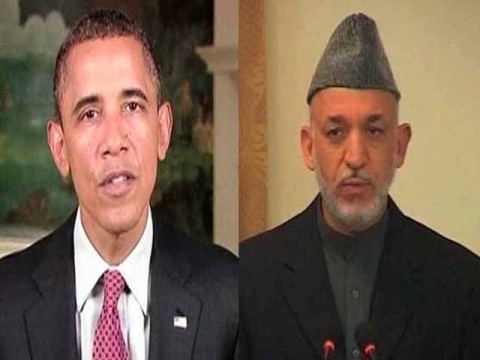Burning copies of the holy Quran at US Bagram airbase in Afghanistan has affected the negotiations about the nature of the US-Afghan relationship once NATO occupation combat troops leave the country in 2014.
Burning copies of the holy Quran at US Bagram airbase in Afghanistan has affected the negotiations about the nature of the US-Afghan relationship once NATO occupation combat troops leave the country in 2014.
President Hamid Karzai has reiterated a series of demands to be met before he signs a long-term treaty, while the US embassy has since signaled the possibility that no agreement will be reached.
Afghan officials say the United States has suspended the talks over the "rigid stance of the Afghanistan government" on its demands.
Without confirming that the talks are on hold, US embassy spokesman Gavin Sundwall said: "We have always said it is more important to get the right agreement than to get an agreement."
One of Karzai's main demands -- in the name of Afghan sovereignty -- is for Afghans to take control soon of the US-run prison at Bagram military base north of Kabul.
When a first deadline of early February was missed, Karzai gave the United States one more month to transfer the jail -- known as Afghanistan's Guantanamo Bay -- but that looks increasingly unlikely.
Sundwall insists the United States is committed to the transition "in a manner that is safe and orderly and in accordance with our international legal obligations".
Another sticking point is whether the US will have permanent bases in Afghanistan. Despite US insisting it does not want this, a US official has told Agence France Press that any arrangement would probably involve "shared facilities" in order to help Afghan forces with intelligence, air power and logistics.
